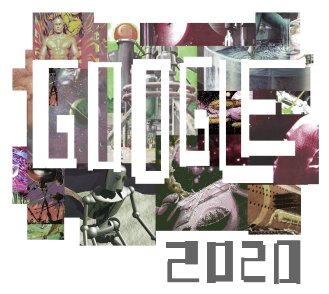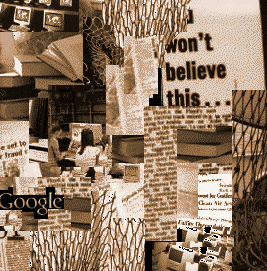Saturday, May 17, 2003
Search Engines: Near and Distant Future
The search engine future will be an exciting one. Let’s predict what Google and others feature in near and distant future.

Page thumbnails (2004)
Similar things are already been tried, but not really successful. It would be nice to have the option to see a little thumbnail preview of all the web pages within a search result.
Image comparison (2004)
There are already databases with images out there that let you search similar images, and this would be a great addition to e.g. Google, AllTheWeb, or AskJeeves image search.
“Espion Visual Search allows users to perform visual searches within a digital asset management application. Users of Espion will be able to search for images that are visually similar to another, or alternatively for altered originals. Espion uses proprietary image comparison algorithms that allow users to control how specific the search is and which visual attributes are significant in the search. Espion displays pairs of matched images instantly and details the likelihood of the match as well as the degree of difference between the original image and the match.”
– Searching for images visually no longer a dream (2001)
One instance where this is useful is if you want to locate a picture of an artist, but you forgot the title or name of the artist. How to search for it? Simply. You open up a simple image creation program, sketch the outlines and colors from what you remember, and upload it to the search service. You would then be presented with similar images.
Another use would be to find images on other sites that break the copyright law. Let’s say you are a photographer fighting for your artistic rights; upload your photo, and find the guilty pages.
Song comparison (2005)
Just like image comparison search: be enabled to find similar tunes to the one provided. Taken to the extreme, this would consist of the user whistling a melody into the microphone, and the search engine delivering a list of titles with samples — connected to online shopping sites where you can micropay-download the whole tune.
Similar words (2005)
Google and others are very precise, and they expect the same from you. Unless your query contains spelling errors, they pretty much take your word for it. Searching “airplane photo” is different than searching for “airplanes photos”, even though this is pretty much the same. A search engine could have the “conceptual understanding” option to help out a little; add the plural form, look for synonyms, and so on.
Browser history helper (2006)
Why do people bookmark pages? To see them again, in the future, of course. It would be a great feature to somehow let the browser give the search engine history information on a visitor’s past browsing activity (of course, there’s some huge privacy issues here — let’s assume this is very much an optional feature). Then, we could execute a search like, “Bring me to this computer shop site I visited about 2 weeks ago.” Add some fuzzy algorithms, the service could now simply analyze which pages visited in the past few weeks contain the keyword “computer” and “shop” and deliver the closest results.
Images descriptions (2008)
It would be a nice feature to search the web’s illustrations based upon an image description. This would be very different from actual keyword search, because you could enter something like: “Still life with lots of fruits” or “Big red circle on yellow ground.”
Find Fragrances, textures and tastes (2014)
Today’s web serves to only two of the five senses (you can see and hear web content). What about touch, smell and taste? Once we have in- and output of those senses — something like a “fragrance scanner” — a search engine could analyze this data and crawl the web based upon the information. Let’s wait until Scentography becomes commercial.
Don’t know what to cook today? Put all the ingrediences you have on the fragrance-scanner, enter the additional keyword “recipe”, and you get lots of ideas. Or you have bought this highly expensive perfume and want to find similar, but cheaper, alternatives? No problem with fragrance-comparison search.
Asking questions, and being asked back (2020)
Services like AskJeeves seems to deliver content based upon real, human-phrased questions. Do they? Of course not — in the end, it’s just analyzing keywords like all the others.
Pablo Picasso said, “Computers are useless. They can only give you answers.” Somehow true. It would be immensely useful if you could actually talk to a search engine, and be asked back.
Imagine the following conversation. Not typed, but spoken, using speech analysis and speech output. And nobody’s sitting in front of a computer, but some device nearby the head has an online connection. And actual web sites might not even be returned; all that is returned is the information extracted from them, in the needed scope.
John: Where can I find a restaurant nearby?
Google: Where do you live?
John: In Manhattan.
Google: What do you like to eat?
John: Oh, something Chinese, but cheap.
Google: Should I reserve a table at the China Wok Restaurant five minutes from your place, in one hour?
John: That would be fine.
Google: Done.
Can you see how much data the search engine now collects? During next log-on (if the user allows privacy settings that make it possible to collect data), the conversation could go like this:
John: I’m hungry and too lazy to cook.
Google: Tables at the China Wok Restaurant are all reserved today, but I found this nice little place ...
Google Answers Researcher Interview: Politicalguru-ga
Politicalguru, Google Answers Researcher from Berlin, Germany, answers some questions for you today!
Politicalguru-ga
What’s your first name?
Tamar
What’s your profession?
Right now I’m a graduate student at the Humboldt University of Berlin. I had verious professions in the past: a political analyst (hence the name), a web site administrator, a special education tutor, PC-lab administrator, and much more.
Any story behind your Researcher nick?
It was picked rather randomly, as a name I used in researcher services before, and sometimes I am pretty embarrassed: I don’t really think that there could be a “guru” in a thing like politics — everyone are entitled to their own opinions.
Politicalguru-ga on Google Answers

What was your first answer for Google Answers (please include date)?
Repairing a rip in a convertible top (28 May 2002)
What was your most recent answer?
KTM Dealer missing from search
What kind of questions do you like to answer most?
Philosophical questions, questions about politics, religion and society.
What were some of the most interesting discoveries you made during your research activity (please include the questions)?
During research about the war in Iraq, I found on the one hand, the very interesting sources of funding of the anti-war movement and on the other hand, the percentage (or number) of the members of the regime who actually have a son or a daughter in the gulf, which was less surprising. I also made quiet a few researches that made me feel a bit like a detective, but of the sort that studies history — whereas one clue led to another.
Hypothetical Musings by Politicalguru-ga
You have one minute to convince a potential customer who doesn’t know about Google Answers to start using it. What do you say?
Find out things that you never thought were possible to find.
If an omniscient deity would be a Google Answers Researcher, which question would you ask?
How to eliminate evil. I’d pay the maximum amount to know a thing like that.
Which famous person, dead or alive, would make a great addition to the Researcher team?
Douglas Adams, of course.
Time magazine features Google Answers; what can be seen on the cover?
Piles of books, newspaper clippings, computers in a fishing net, on which the Google Answers Symbol appears.
Politicalguru-ga’s Favorites
What are your favorite research tools, on- and offline?
Google itself. I use it even for my own dissertation — to locate new books on the subject, what authorities in the field think, etc.
What are some remarkable less known websites?
Less known to whom? Whenever I am asked, I say that Everything 2 is undervisited. On the same note, there is also the interesting h2g2 site.
What are some of your favorite Google Answers by fellow Researchers?
Chromedome-ga’s answer on a Victorian artist jumps to mind, as well as many answers by Pinkfreud.
Politicalguru-ga’s Spare-time
Got any weird hobbies?
Weird? Moi? No way, unless you count my love for 1970s music, Kareoke and the Eurovision Grand Prix... I think my weirdest hobby is a love for maps — I mean geographical ones. When I wait for the train, I read the map that is hanging there — it is like a book to me.
What are some of your favorite books, movies, and music albums?
Just yesterday I happened to listen to the Beatles and to realise — they are still my favourites. I also love Neil Young, and 1970s music, as I mentioned before. The Princess Bride is a favourite of mine (I like fantasy and also very keen on the Harry Potter series as books), as well as 1-2-3 — a Billy Wilder comedy (with Horst Buchholz) about Berlin — I like good social farces. I like my books to be funny or interesting, like Julian Barnes’ books, or the Hitchhiker’s Guide to the Galaxy and everything else Douglas Adams had ever written.
Final words by Politicalguru-ga
What would be the title of your autobiography?
Songs from the parter floor, because I always have a song in mind, something like the hero of “Soloalbum” by Benjamin von Stuckrad-Barre, I don’t know if this was translated into English.
Anything else you might want to say?
If you happen to read this page — try Google Answers. We won’t bite, we promise.
>> More posts
Advertisement
This site unofficially covers Google™ and more with some rights reserved. Join our forum!
